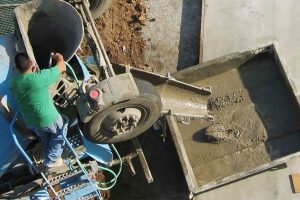CEMENT importers expressed their opposition to safeguard duties, claiming that the influx of foreign cement has not significantly harmed the domestic cement industry.
According to Philcement Corp., domestic cement manufacturers have posted growth in the last five years, contrary to the argument that imports have harmed them.
The Tariff Commission is currently investigating the proposed imposition of safeguard duties against cement imports from various countries.
Philcement Assistant Vice-President for Business Development Ma. Monica Cueto-Mamites said at TC hearing on Wednesday that “There is clear evidence of no significant impairment, as there are large domestic players that have shown resilience, competitiveness, and growth over the period of investigation (PoI).”
She said that other factors, apart from imports, could have caused the declining performance of Cement Manufacturers’ Association of the Philippines (CeMAP) members during the PoI.
“In our analysis, we have noted that the revenue of CeMAP members indeed dropped at an annual average of minus 7% over the period of investigation,” she said.
“But the domestic companies who are not members of CeMAP had an annual average topline growth of 7%,” she added.
She cited a similar trend in operating income, where non-CeMAP companies recording average annual growth rates of 0.5%.
Meanwhile, CeMAP members recorded an average 174% decline in operating income.
Citing reports filed with the Securities and Exchange Commission and the Philippine Stock Exchange, she said that the companies cited settlements, the impact of the election and global commodity prices, higher input costs, delays in government projects, and unfavorable weather conditions as reasons for their declining performance.
“Moreover, the Philippine cement industry is highly regulated and enjoys several tariff and non-tariff (protections),” she said.
These include safeguard measures implemented in 2001-2004 and 2019-2022, anti-dumping duties beginning in 2023, and the provisional safeguard duty imposed by the Department of Trade and Industry at P400 per metric ton.
She also cited the PS License requirement, mandatory certification of each shipment, tax incentives for investments, and the Tatak Pinoy Act, which gives priority to domestic producers for government projects. — Justine Irish D. Tabile
